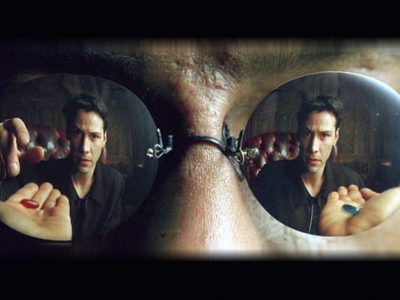It’s that age-old cliché: Go to college, fall in love. Only I didn’t fall in love with a person—I fell in love with movies.
One of the first classes I took at the University of Washington was a class on film genre. The genre for that quarter was martial arts. I mean, really? Not only did they want to teach me about trashy movie genres, but they wanted to teach me about possibly the most trashy of the trashy genres? I was convinced the whole thing would go horribly wrong. And maybe that’s why I couldn’t stay away.
It was nothing like what I thought a college class should be. It didn’t feel like work, really, and the professors weren’t just grumbly old dudes in tweed jackets, but real live people with a sense of humor, which I suppose you need in order to teach millennials about kung-fu movies. This class was fun. And not only that, but I actually felt like I was learning something. We watched movies like Seven Samurai and Drunken Master, Hero and The Matrix, and gave equal sincerity and attention to each as we broke them down for narrative and visual technique. I should’ve honestly known that I’d get hooked.
That class was a prerequisite for the film major. That was part of why I took it. I was curious what made film classes different from English classes, and why there was an entire major devoted to that thing you did in school only when your teacher didn’t feel like teaching. I came to college with the intent of pursuing a creative writing degree. In fact, I’d wanted to be a novelist since I was 8 years old. But by my second quarter, with the only prereq I needed under my belt, and guided by the blind trust of the truly besotted, I did that thing Robert Frost taught me about and declared a film major.
It felt strange, at first—I didn’t know the rules of the field back to front like I did for English. In a way, that was also nice because I didn’t come at it with the same expectations for myself that I brought into creative writing, where I was still stubbornly pursuing a double-major. In film, there was less pressure. I was free to explore. In creative writing, though, the more classes I took, the more I felt like I couldn’t measure up.
Because, sure, I liked “Jane Eyre” and “Frankenstein,” but I liked Star Trek and Captain America, too. My big secret is that I signed up for that martial arts film class because I love trashy genre fiction. I love it to bits. It was all I wanted to write for my short story and poetry classes, but the creative writing department at UW has this rule forbidding genre work from the curriculum. So every time I took on a new assignment, I either had to write something I didn’t care about or bend the rules and watch my grade and my self-esteem plummet.
I learned pretty quickly that every department has its own personality. My high school self would’ve fit right into the poetry class I took as a freshman, but the version of me who actually took the class was miserable, sullen and resentful all the way through, and came out with one of her worst grades ever.
The person I was in high school would do anything she could, be anything she had to be in order to live up to the expectations of those around her. The person I am now thinks back to how many hoops I used to jump through, how much I contorted myself to try and please people who were never really looking anyway, and immediately, I feel exhausted.
From the day my dad and I moved all my books into the tiny basement bedroom I now call home, I’d started to change. Maybe even before that—maybe it started with high school graduation or even earlier. Maybe it started when I got rejected from every school I applied to except for one.
Somewhere down the line, I just got tired of struggling to be something I wasn’t. Every choice I made about my future was at least in part influenced by what people thought of me, which is what drove me to reach way too high when I applied to colleges, and also what drove me to try and validate my lifelong love of writing by tacking a degree on it. It’s what drove me into the creative writing department in the first place and what probably kept me there too long.
I don’t want to demonize an entire department, though. Those guys are doing some amazing things and I still have really close friends in the major. When I was there, I just felt like there was an implicit set of standards that you had to meet and that they’d weed out anyone who wasn’t “good enough.” In that poetry class I took, I felt like my writing style kept butting up against my instructor’s idea of a good aesthetic and while my grade didn’t directly suffer from it, the instructor’s opinion of me sure did. Plus, I had to submit a writing sample to even get into the major.
Honestly, I don’t think the department was a bad place for me not because it was doing something wrong, but because I was. I looked at the prompts in my poetry class, the blank space where the writing sample should go in the major application, and I thought, What do they want from me? Who do I need to be to make them happy?
There’s this line I got from an acting class I took last year—“not performance, but exploration.” This is the most important thing I’ve learned about myself as a writer and a learner since coming to college: I would rather explore than perform.
I found the freedom I needed in the film major. It has its own set of standards there, of course. Everyone does. But it also, as far as I can see, is much more open to new insights and interpretations. Certainly, the department is open to the trashy genre fiction I’ve always not-so-secretly adored.
The only classes I’ve aced in college so far are “Film History 1989 to Present” and “Science Fiction and Fantasy.” If that’s not love, I don’t know what is.
Last week, I finally dropped the creative writing major. Next June I’ll be graduating with a degree in film.



















